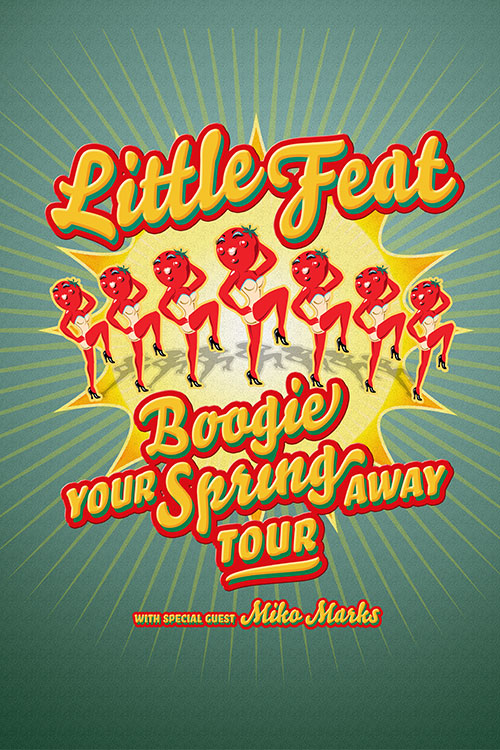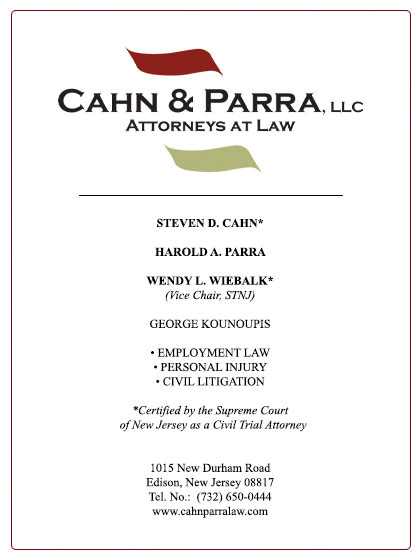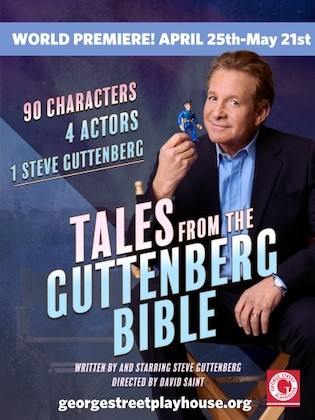

LITTLE FEAT
Little Feat is the classic example of a fusion of many styles and musical genres made into something utterly distinctive. Their brilliant musicianship transcends boundaries, uniting California rock, funk, folk, jazz, country, rockabilly, and New Orleans swamp boogie into a rich gumbo, that has been leading people in joyful dance ever since.
It began in 1969 when Frank Zappa was smart enough to fire Lowell George from the Mothers of Invention and tell him to go start a band of his own. Soon after, Lowell connected with Bill Payne, which stirred up sparks. They then found drummer Richie Hayward.
They were quickly signed by Warner Bros. and began working on the first of 12 albums with that venerable company. The first album, Little Feat, featured the instant-classic tune “Willin’,” and the follow-up Sailin’ Shoes added “Easy to Slip,” “Trouble,” “Tripe Face Boogie,” “Cold Cold Cold,” and the title track to their repertoire. Paul Barrére, Kenny Gradney (bass), and Sam Clayton (percussion), joined up, and the latter two remain rock-solid members of Little Feat’s rhythm section.
1973’s Dixie Chicken gave them the title track and “Fat Man in the Bathtub,” as good a blues as any rock band has ever written. Their career to that point was summed up with the live Waiting for Columbus, truly one of the best live albums rock has ever heard.
50 years on the road cost them Lowell George, then Richie Hayward, and Paul Barrére, but the music has carried them forward. When you spend your life on the road you can get eaten up by the stresses, or you can hold on to your music and your friends and the joy of the people out front and keep the priorities straight the way the Featsters have.
Little Feat is Bill Payne, keyboards and vocals; Sam Clayton, percussion and vocals; Fred Tackett, guitars and vocals, Kenny Gradney, bass; Scott Sharrard, guitars and vocals; and Tony Leone, drums.
50 years on, they’ve been up and they’ve been down and they know where they belong—standing or sitting behind their instruments, playing for you. And anything’s possible because the end is not in sight.

MIKO MARKS
After living what seems to be multiple lives over, Miko Marks has finally come into the life she was born to live. Her life as a Black woman in country and roots music is only a small part of the story. As she readies her latest album, Feel like Going Home, for release (October 14, 2022 via Redtone Records), it’s beyond time to dig deeper.
Marks was born in Flint, Michigan by a single mother who raised her to fight for equal rights for all. Her mother would protest on a local level in their town and would travel to Detroit for larger demonstrations. This impacted Marks greatly as she grew and was pivotal in finding her own voice. Her mother would spend nights working third shift at the automotive factory, while her grandmother would watch over her, helping raise her for most of her young life. For Marks, the women in her life were of utmost importance to her and their hopes and dreams for her were cautiously optimistic while being pragmatic due to the barriers they faced in their own lifetime.
Marks grew up traveling around in the family van to sing at various church conventions, but even with a show-stopping voice, it seemed singing was mostly just a hobby—not a career to pursue. She studied Political Science at Grambling State University and planned on becoming a criminal defense attorney, but her law degree was put on hold after she married young and gave birth to her son, Justin. After some encouragement from her husband, she began to sing again, and she released two country albums—Freeway Bound (2005) and It Feels Good (2007). She received great critical praise and was a regular participant at CMA Fest in Nashville, but the growth was stymied by industry gatekeepers.
After over a decade-long hiatus, with no grand vision of success, Marks recorded a few songs with bandmates Justin Phipps and Steve Wyreman. That collection of songs became Our Country and it was released on Justin’s small non-profit record label, Redtone Records. They enlisted the help of Brooklyn Basement Records to take it to market. Due to the success of Our Country, they put out an EP of covers six months later called Race Records which shined a light on the arbitrary divisions forced upon artists and audiences in the early days of music marketing in the 1940s. Her unique sound deftly blends country, blues, southern rock and even gospel to create a sound and experience that has literally brought every audience to its feet. This new sound, along with her warm and soulful spirit, catapulted her into a community of change.
Feel Like Going Home is an amalgamation of where Marks has been and where she is going. What she has learned and what she wants to teach. It’s an innermost look at the ebb and flow of her past, present, and future. It’s the stories she wants to tell but hasn’t been able to speak into existence ever before. The messages are profound: healing, restoration, and distinctly individual.








